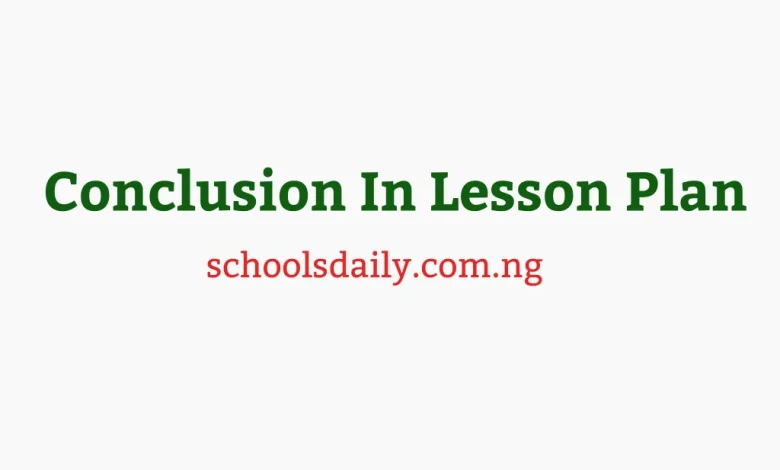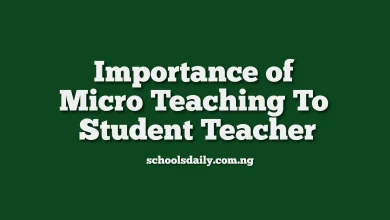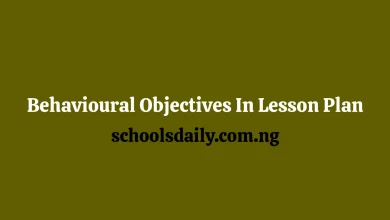Conclusion In Lesson Plan

This article will help you understand what a conclusion in a lesson plan means. It also offers valuable tips on how to effectively write and use conclusions in your lesson plans. If you are a teacher or a student teacher who is new to this, read on for some great insights.
What a Conclusion in a Lesson Plan Means
The conclusion of a lesson plan is a final summary of all the key points you’ve covered. It helps to reinforce the learning objectives and gives the lesson a sense of closure. This is where you help students consolidate their understanding of the material and shift from actively learning to reflecting on and applying what they’ve learned.
Elements Of An Effective Lesson plan “Conclusion”
Here are the essential elements of a good conclusion for your lesson plan:
- Summarize the main points. Go over the key ideas, formulas, or principles you discussed during the lesson. This helps students recall the important information and connect it to the learning objectives.
- Reinforce the learning objectives. Briefly review the lesson’s goals and emphasize how the material you covered helped achieve them. This strengthens the link between the activities and the intended outcomes.
- Connect to previous lessons. Show how the current lesson builds on what students have already learned. This helps them see the bigger picture and how all the concepts are connected.
- Preview what’s next. Briefly introduce the upcoming lesson or activity. This provides a smooth transition to the next stage of learning and keeps students engaged.
- Encourage application. Ask questions or provide prompts that encourage students to apply what they’ve learned to real-world situations or their own experiences. This promotes a deeper understanding and practical use of the concepts.
- Assess understanding. Ask your students to summarize the lesson in their own words or write a short reflection. This helps you gauge their understanding of the material and identify areas where they might need extra help.
- Provide closure. End the lesson with a positive and encouraging statement, like a meaningful quote, a thought-provoking question, or a reminder of why what they’ve learned is important. This leaves a lasting impression and motivates them to continue exploring the topic.
- A strong conclusion helps your students solidify their understanding, connects the lesson to the bigger picture of the curriculum, and prepares them for future learning. It’s a valuable tool for effective teaching and keeping your students engaged.
How To Write Conclusion In Lesson Plan
In your lesson plan, the conclusion follows the evaluation phase. This is when you revisit the main points you taught during the lesson. You’ll emphasize key concepts, check students’ notes, and might give them extra information to copy, all while making any necessary corrections.
The main idea of the lesson, which is based on the topic, acts as a summary. This summary, also called the conclusion or “summing up,” provides additional clarity on the topic to boost your students’ understanding. Essentially, the conclusion pulls together the core ideas you want your students to grasp by the end of the lesson.
A conclusion in a lesson can take several forms, such as assigning tasks or getting students ready for the next lesson. You’ll often find that the terms “conclusion” and “summary” are used interchangeably because they’re so similar.
To conclude your lesson, make sure all your students have a good grasp of the new concepts. Check that their classwork is completed with the correct answers, and then assign homework. Collect their books for marking and correction.
Conclusion In Lesson Plan Example
| STEP | Teacher’s Activities | Students Activities | Learning Points |
| Evaluation | |||
| Conclusion | The teacher concludes the lesson by correcting students’ wrong answers and gives them notes on the board. | The pupils respond to the teacher and copy notes on their exercise books. | Consolidating concepts learnt in the lesson. |
| Assignment |
You’ll end the lesson by summarizing the key points—a quick recap of the most important lessons. You’ll also address any questions from your students, reinforce the main points, and provide any corrections before assigning tasks and perhaps giving them a peek at the next topic.
It’s important to remember that the evaluation phase and the assignment phase are distinct from the conclusion. The conclusion comes after you’ve evaluated your students’ understanding and before you assign them their next task.



